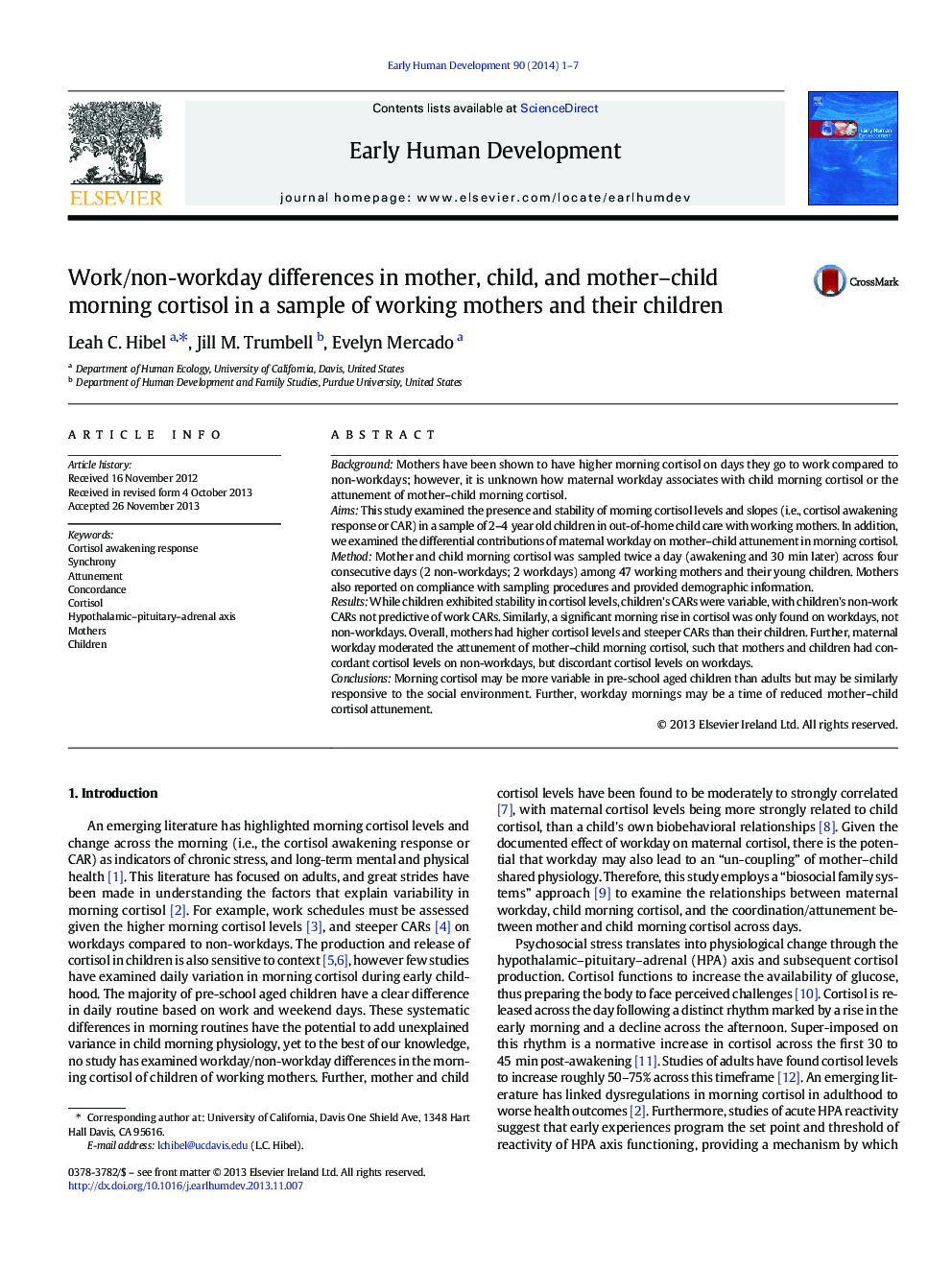| Article ID | Journal | Published Year | Pages | File Type |
|---|---|---|---|---|
| 3918072 | Early Human Development | 2014 | 7 Pages |
BackgroundMothers have been shown to have higher morning cortisol on days they go to work compared to non-workdays; however, it is unknown how maternal workday associates with child morning cortisol or the attunement of mother–child morning cortisol.AimsThis study examined the presence and stability of morning cortisol levels and slopes (i.e., cortisol awakening response or CAR) in a sample of 2–4 year old children in out-of-home child care with working mothers. In addition, we examined the differential contributions of maternal workday on mother–child attunement in morning cortisol.MethodMother and child morning cortisol was sampled twice a day (awakening and 30 min later) across four consecutive days (2 non-workdays; 2 workdays) among 47 working mothers and their young children. Mothers also reported on compliance with sampling procedures and provided demographic information.ResultsWhile children exhibited stability in cortisol levels, children's CARs were variable, with children's non-work CARs not predictive of work CARs. Similarly, a significant morning rise in cortisol was only found on workdays, not non-workdays. Overall, mothers had higher cortisol levels and steeper CARs than their children. Further, maternal workday moderated the attunement of mother–child morning cortisol, such that mothers and children had concordant cortisol levels on non-workdays, but discordant cortisol levels on workdays.ConclusionsMorning cortisol may be more variable in pre-school aged children than adults but may be similarly responsive to the social environment. Further, workday mornings may be a time of reduced mother–child cortisol attunement.
